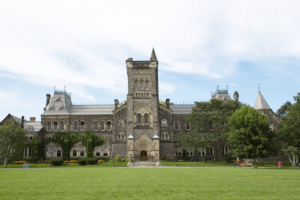Are you considering pursuing a Masters in Psychology in Canada? Canadian universities have a strong reputation for their psychology programs, providing high-quality education and access to renowned faculty members who are experts in their respective fields.
Multiple Canadian universities offer world-class part-time and full-time courses in different psychology specializations, typically 1 to 2-year programmes.
The specializations focus on areas such as clinical psychology, counselling psychology, developmental psychology, industrial-organizational psychology, and more.
Universities typically offer multiple intakes for Masters in Psychology in Canada programs. The most common intakes are in the fall (September) and winter (January) semesters.
Some universities may also have additional intakes, such as in the spring or summer, but they may differ depending on the college and the specific program.
A graduate with Masters in psychology in Canada can get high-paying entry-level jobs with an average salary of 60,000 CAD to 80,000 CAD (36-48 lakh INR).
International students can expect to pay tuition fees ranging from approximately CAD 15,000 to CAD 35,000 annually.
Check Your Eligibility for 80+ Universities across Canada
Book a free counselling session and find universities where you can get an Admission!

Check Your Eligibility for 80+ Universities across Canada

Book a free counselling session and find universities where you can get an Admission!
The cost of living can range from approximately CAD 15,000 to CAD 25,000 per year, depending on the location and personal lifestyle choices.
Masters in Psychology in Canada: Universities and Fees
University of Toronto
Founded in 1827, the University of Toronto is one of the oldest and most prestigious universities for pursuing Masters in Psychology in Canada. It is reputed for offering students onsite projects that help them gain practical experience and develop new skill sets.
IELTS Score eligibility: 7.0
| Application Deadlines | Duration | Annual Tution Fees (CAD) |
| December 2023 | 2 years | 30,098 |
University of British Columbia
The University of British Columbia is a global centre for research and academics and a very good choice to pursue a Masters in Psychology in Canada.
IELTS Score eligibility: 6.5
| Application Deadlines | Duration | Annual Tution Fees (CAD) |
| December 2023 | 2 years | 9,500 |
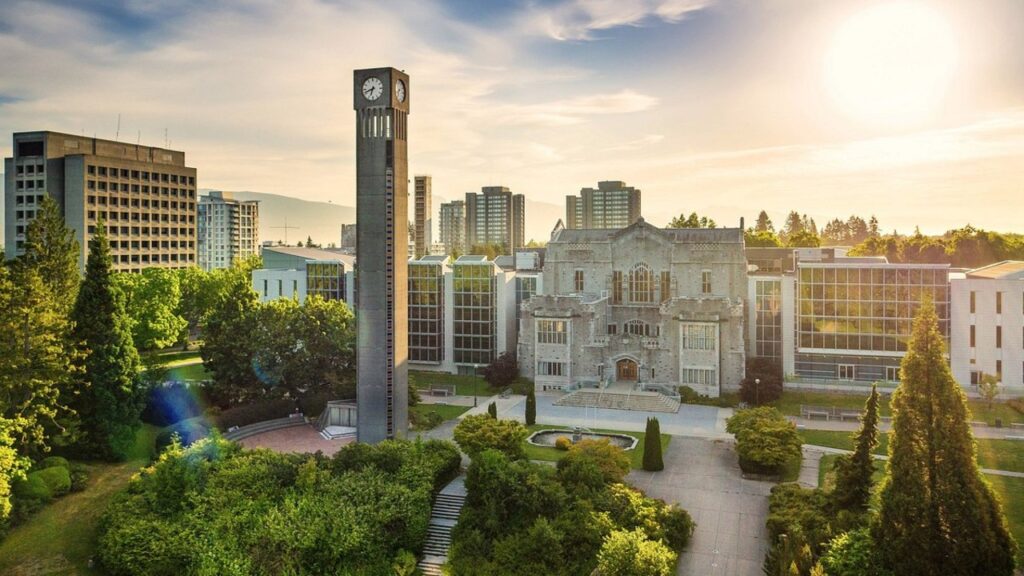
University of Waterloo
Founded in 1957, the University of Waterloo is one of the best choices for pursuing Masters in Psychology in Canada as the department offers a wide range of specializations for UG and PG courses.
IELTS Score eligibility: 7.0
| Application Deadlines | Duration | Annual Tution Fees (CAD) |
| December 2023 | 2 years | 23,088 |
McGill University
McGill University, founded in 1821, is one of the top 30 universities in Canada. Reputed as one of the best universities in the world, McGill hosts students from around 150 countries. It’s a great choice for pursuing Masters in Psychology in Canada.
IELTS Score eligibility: 6.5
| Application Deadlines | Duration | Annual Tution Fees (CAD) |
| January 2024 | 2 years | 19,154 |
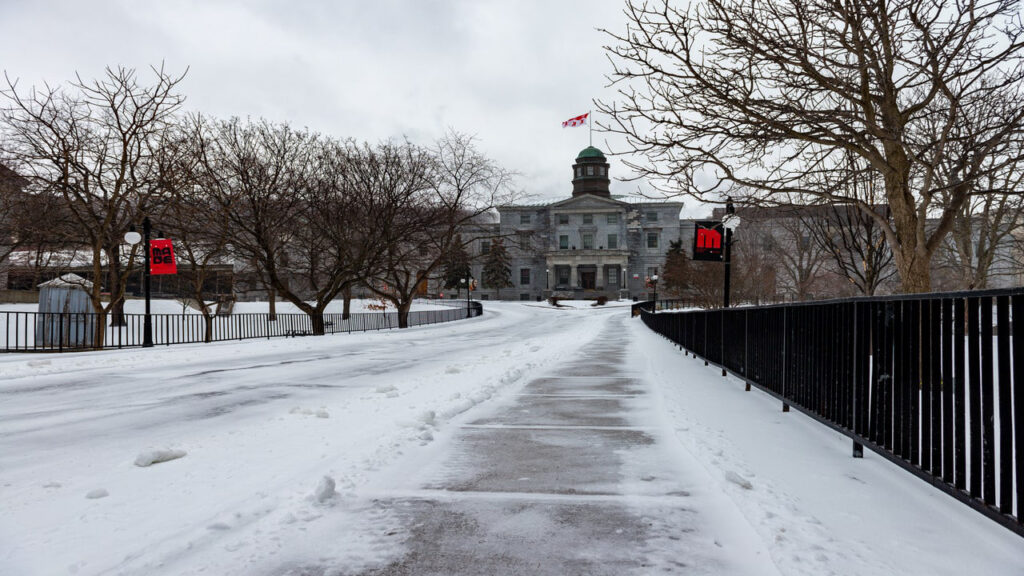
McMaster University
Founded in 1881, McMaster University operates 6 academic faculties. Among these, Social Sciences, including the psychology department, is among the best to pursue.
IELTS Score eligibility: 6.5
| Application Deadlines | Duration | Annual Tution Fees (CAD) |
| December 2023 | 2 years | 17,094 |
Western University
Western University has been ranked among the top 1% of higher education institutions globally and has one of the highest employment rates following UG and PG courses. It’s one of the best universities to pursue Masters in Psychology in Canada.
IELTS Score eligibility: 6.5
| Application Deadlines | Duration | Annual Tution Fees (CAD) |
| December 2023 | 2 years | 12,908 |
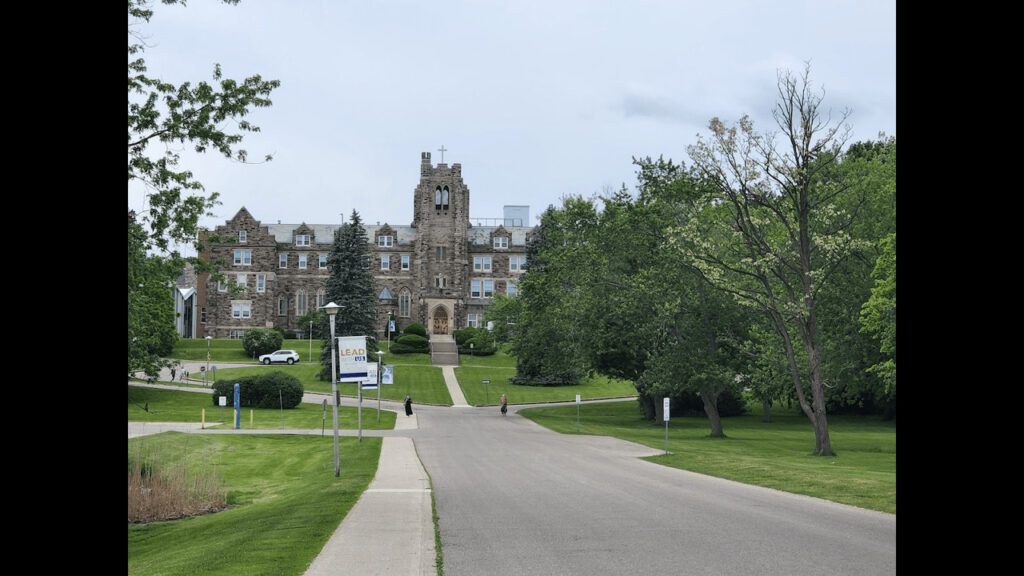
Queen’s University
Queen’s University is known for its international student-friendly environment, as it hosts students from around 100 countries. Queen’s has been placed in the 2nd rank for its residential living by McLeans.
IELTS Score eligibility: 7.0
| Application Deadlines | Duration | Annual Tution Fees (CAD) |
| December 2023 | 4 years | 12,927 |
Dalhousie University
Founded in 1818, Dalhousie University hosts one of the oldest and most prestigious departments of psychology to pursue your master’s.
IELTS Score eligibility: 7.0
| Application Deadlines | Duration | Annual Tution Fees (CAD) |
| December 2023 | 1-2 years | 10,341 |
York University
A member of the Russell Group, York University is a research-intensive university. YorkU or YU, has been known for providing a hands-on experience as a major part of the curriculum.
IELTS Score eligibility: 7.5
| Application Deadlines | Duration | Annual Tution Fees (CAD) |
| December 2023 | 2 years | 18,825 |
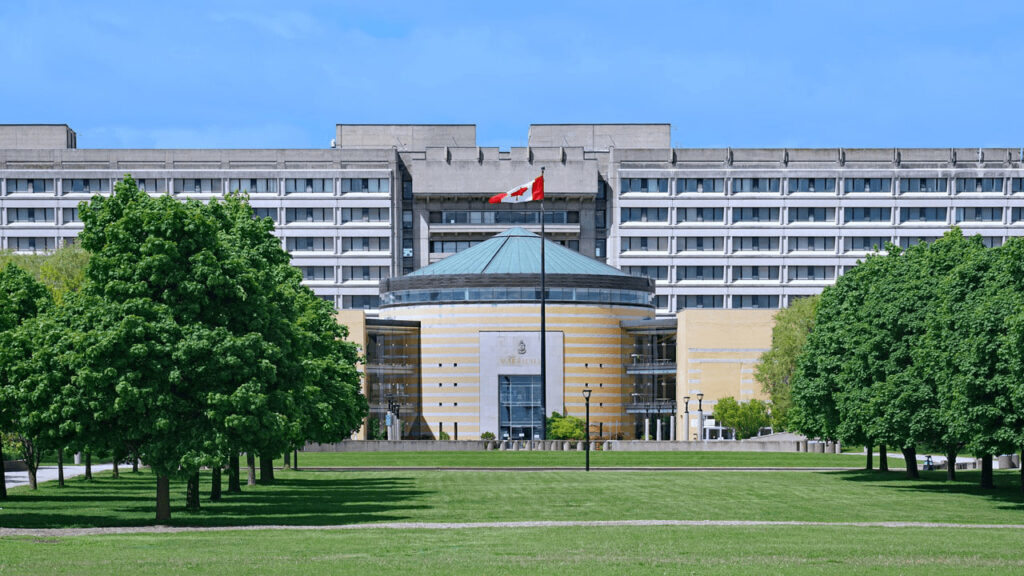
University of Alberta
The University of Alberta was founded in 1908. It is known widely for its diversity, housing a community of 7200 international students. This makes it a very good option for Indian students to pursue their postgraduate studies.
IELTS Score eligibility: 6.5
| Application Deadlines | Duration | Annual Tuition Fees (CAD) |
| December 2023 | 2 years | 8,874 |
Looking for a comprehensive list of universities with Masters in Psychology in Canada, along with expert advice on the admissions process?
Contact Leap Scholar today to access our full list of universities accepting Masters in Psychology Canada and get additional guidance and support from our experts.

Course Structure for Masters in Psychology in Canada
Pursuing a Master’s in Psychology in Canada allows you to delve deeper into the fascinating field of psychology and gain advanced knowledge and skills.
The program typically consists of a well-structured curriculum that combines theoretical foundations with practical training.
The curriculum is designed to provide a comprehensive understanding of psychological principles, research methodologies, and practical applications, enabling you to make meaningful contributions to the field of psychology.
The course structure may vary slightly between universities and specializations, but this outline gives you an idea of what to expect in a Masters in Psychology in Canada.
| Course Component | Description |
| Core Courses | These courses provide a solid foundation in areas such as research methods, psychological assessment, cognitive psychology, developmental psychology, and more. |
| Specialization Courses | Depending on your chosen specialization, you’ll take courses focusing on topics such as clinical psychology, counseling psychology, forensic psychology, etc. |
| Elective Courses | Electives allow you to explore specific areas of interest or broaden your knowledge in related disciplines such as neuroscience, social psychology, or organizational psychology. |
| Research and Thesis | A significant component of the program involves conducting independent research and completing a thesis under the guidance of a faculty advisor. This allows you to contribute to the field and demonstrate your research skills. |
| Practicum or Internship | Many programs include a practicum or internship component, providing valuable hands-on experience in a real-world setting. This allows you to apply your skills and gain practical insights into the field of psychology. |
| Seminars and Workshops | Seminars and workshops offer opportunities for further learning and engagement with current research and advancements in the field. |
Career Outcomes for Masters in Psychology in Canada
Completing a Master’s in Psychology in Canada opens up a wide range of career opportunities in various fields. As a graduate, you can pursue diverse roles that allow you to apply your psychological knowledge and skills to make a meaningful impact.
Here are some of the roles Master’s in Psychology graduates in Canada commonly pursue.
- Clinical Psychologist: Clinical psychologists assess, diagnose, and treat individuals with mental health disorders, providing therapy and counselling services to help improve their well-being.
- Counselling Psychologist: Counseling psychologists work with individuals, couples, or groups, providing guidance and support to help clients navigate personal and emotional challenges.
- Research Psychologist: Research psychologists conduct studies and analyze data to contribute to advancing psychological knowledge, working in academic settings, research institutions, or private organizations.
- Industrial-Organizational Psychologist: Industrial-organizational psychologists apply psychological principles in workplace settings, focusing on employee behaviour, motivation, leadership, and organizational development.
- Forensic Psychologist: Forensic psychologists apply their expertise to the legal system, conducting assessments, providing expert testimony, and working with law enforcement agencies or correctional facilities.
- School Psychologist: School psychologists work in educational settings, assessing and supporting students’ academic and emotional well-being and collaborating with teachers and parents to create a positive learning environment.
- Health Psychologist: Health psychologists specialize in the intersection of psychology and physical health, helping individuals manage health-related behaviours, cope with chronic illnesses, and promote overall well-being.
- Rehabilitation Counselor: Rehabilitation counsellors assist individuals with disabilities or injuries overcome challenges and develop skills to reintegrate into society and achieve independence.
- Human Resources Specialist: With their understanding of human behaviour and organizational dynamics, psychology graduates can pursue careers in human resources, focusing on areas such as recruitment, training, and employee development.
- Mental Health Program Coordinator: Mental health program coordinators manage and oversee mental health programs, ensuring effective service delivery, coordinating resources, and advocating for improved mental health services.
Here’s an overview of some top roles and their salaries for Masters in Psychology in Canada.
| Designation | Average Salary |
| Clinical Psychologist | $80,000 – $120,000 |
| Counselling Psychologist | $60,000 – $90,000 |
| Research Psychologist | $70,000 – $100,000 |
| Industrial-Organizational Psychologist | $80,000 – $110,000 |
| Forensic Psychologist | $70,000 – $100,000 |
| School Psychologist | $70,000 – $95,000 |
| Health Psychologist | $70,000 – $100,000 |
| Rehabilitation Counselor | $50,000 – $75,000 |
| Human Resources Specialist | $60,000 – $90,000 |
| Mental Health Program Coordinator | $60,000 – $80,000 |
Top Companies Recruiting Masters in Psychology in Canada Graduates
Regarding employment opportunities, Master’s in Psychology graduates in Canada have the advantage of being sought after by various companies and organizations.
Canada is an excellent option for international students as the country has easy PR. Most international students stay back post-graduation to find employment and further settle in the country.
Here are some top companies known for hiring psychology graduates:
- Centre for Addiction and Mental Health (CAMH)
- University Health Network (UHN)
- Canadian Mental Health Association (CMHA)
- Government of Canada
- Deloitte
- Bell Canada
- Morneau Shepell
- CIBC
- Loblaw Companies Limited
- Toronto District School Board

Final Thoughts
Canadian universities provide a robust academic environment with renowned faculty, diverse program offerings, and a strong emphasis on research.
Students can engage in cutting-edge research projects, gain practical experience through internships, and benefit from a collaborative and inclusive learning environment.
Graduates can expect a range of career roles across sectors such as clinical psychology, counselling psychology, industrial-organizational psychology, research, and more.
Leap Scholar provides expert advice, resources, and support to help you navigate your Masters in Psychology program in Canada and make informed decisions about your career path.
Our experienced counsellors can assist you in exploring program options, understanding admission requirements, and providing guidance for a successful academic and professional journey.
The opportunities for personal and professional growth, coupled with the supportive academic environment and the resources available through Leapscholar, make Canada an excellent destination for those seeking to expand their expertise and make a meaningful impact in psychology.
Frequently Asked Questions
-
What are the admission requirements for a Masters in Psychology in Canada?
Requirements include a completed undergraduate degree in psychology or a related field, letters of recommendation, a statement of purpose, transcripts, and sometimes a minimum GPA requirement. Some programs may also require GRE scores or proof of English language proficiency for international students.
-
How long does it take to complete a Masters in Psychology in Canada?
It takes around 2 years to complete a Masters in Psychology in Canada.
-
What are the specializations I can opt for during my Masters in Psychology in Canada?
Specializations include clinical psychology, counselling psychology, developmental psychology, forensic psychology, and more.
-
Can I work while pursuing my Masters in Psychology in Canada?
Yes, international students with valid study permits can work part-time during their studies.
-
Are there scholarships or financial aid options available for international students?
Yes, various scholarships, grants, and funding opportunities are available for international students pursuing a Master’s in Psychology in Canada.
-
How much does a Masters in Psychology in Canada for international students cost?
On average, international students can expect to pay tuition fees ranging from approximately CAD 15,000 to CAD 35,000 per year.
-
What are the career options after Masters in Psychology in Canada?
The career prospects include clinical psychologists, counsellors, researchers, educators, or in roles related to human resources, community development, or government agencies.
-
Are there any specific licensing requirements to practice as a psychologist in Canada after completing a Masters in Psychology?
Yes, to practice as a psychologist in Canada, additional licensing requirements vary by province and typically involve supervised experience and successful completion of licensing exams.
-
Can I apply for a Ph.D. program in psychology after completing a Masters in Psychology in Canada?
Yes, completing a Masters in Psychology can be a stepping stone to pursuing a Ph.D. program in psychology in Canada or elsewhere.
-
What is the typical duration of a Masters in Psychology program in Canada?
The duration of a Master’s in Psychology program in Canada is typically 1-2 years, depending on the university and program structure.
-
Are online or part-time options available for Masters in Psychology programs in Canada?
Some universities in Canada offer online or part-time options for their Master’s in Psychology programs, providing flexibility for students with other commitments.
